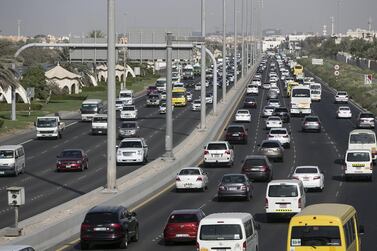I work shifts for my employer and, until a year ago, whenever a work day fell on a public holiday we would receive a day in lieu. There was no extra payment but another day off was awarded. Now the company does not offer a day in lieu or any other benefit for working on a public holiday if it falls at the weekend. However, office employees working Sunday to Thursday, receive the day off if the public holiday falls on one of these days. The company says they have consulted the Ministry of Labour and can do this. It seems totally unfair to all of us working shifts. Can we challenge this? MB, Sharjah
I have reason to doubt the employer’s claim that they checked this with the Ministry of Human Resources and Emiratisation (formerly the Ministry of Labour). Article 81 of UAE Labour Law states: “Should the work circumstances require the worker work during holidays or leaves for which a complete or partial payment is paid thereto, the worker shall be granted a substitute leave as well as an increase in the wage amounting to 50 per cent thereof. Should he not be granted a substitute leave, the employer shall pay to the worker an additional sum to the basic salary thereof amounting to 150 per cent with regards to the days of work.” This has not changed and so MB and his colleagues are entitled to time off in lieu and also an additional payment, although the additional payment will not apply to managerial or supervisory staff. MB can seek further confirmation from the MoHRE.
I work in Dubai for a security firm and I want some resignation advice. My contract is for two years and I have worked for 16 months. How much money do I have to pay for a penalty? How much will my gratuity be? And, what else does the employer have to pay to me? SR, Dubai
When someone on a fixed-term contract of employment wants to leave a company before the end date of their contract, they will be liable to pay a penalty. Article 116 of UAE Labour Law states: “Should the contract be rescinded by the worker … the worker shall be bound to compensate the employer for the loss incurred thereto by reason of the rescission of the contract, provided that the amount of compensation does not exceed the wage of half a month for the period of three months, or for the remaining period of the contract, whichever is shorter, unless otherwise stipulated in the contract.” This equates to approximately 45 days of income.
No end of service gratuity payment is payable to SR as he has not completed five years of service. Again this is because the rules are different to an unlimited contract. This is covered in Article 138 of the Labour Law, which says: “Should the worker bound by an employment contract with determined term leave his work by his own choice prior to the expiry of the contract, he shall not be entitled to an end of service gratuity unless the duration of the service period exceeds five years." The employer only needs to pay SR for any days of annual leave accrued but not taken, although this will usually be offset against the penalty that is payable. As the contract will not be completed and SR is leaving of his own accord, the employer is not obliged to pay for the cost of a flight to a home country.
I visited the UAE on a tourist visa but I could not find a job and overstayed for nine months. As I ran out of money and knew I was staying illegally, I eventually handed myself in to the police in Abu Dhabi. I was then jailed and eventually deported. I now want to return to the UAE, so how many months must I wait before I can come back? NN, Uganda
When a person is deported from the UAE, they are usually given a lifetime ban with few exceptions. UAE Immigration Law, Federal Law No. 6 of 1973, states: “The Department of Nationality and Immigration shall issue an order for the deportation of an alien if he has no residence licence or if his residence licence has expired. Such an alien may return to the country if he fulfils the conditions for entry in accordance with the provisions of law." Specific permission is required by way of application and most will be denied as general guidance is that anyone who has been deported may not return. This is confirmed by Article 38 of the same law. It says: "An alien who has been deported may not return to the country except with special permission from the Ministry of Interior."
Keren Bobker is an independent financial adviser and senior partner with Holborn Assets in Dubai, with over 25 years’ experience. Contact her at keren@holbornassets.com. Follow her on Twitter at @FinancialUAE
The advice provided in our columns does not constitute legal advice and is provided for information only








